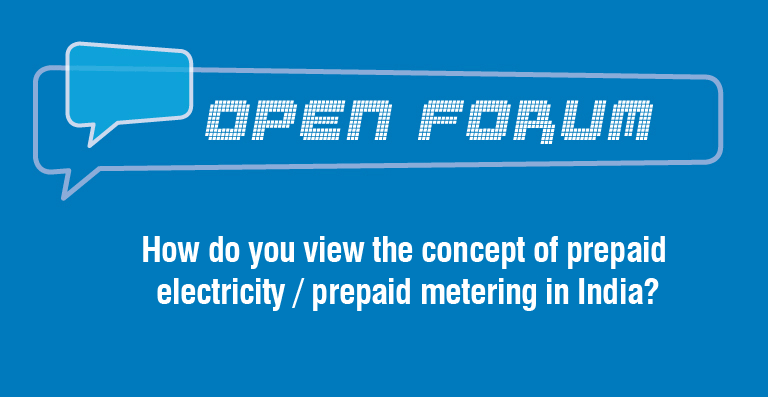How do you view the concept of prepaid electricity / prepaid metering in India?
By EPR Magazine Editorial September 5, 2019 4:51 pm IST
By EPR Magazine Editorial September 5, 2019 4:51 pm IST


Prepaid electricity is a concept which is applicable in the urban areas. Such ideas cannot sustain in the rural areas. I suggested having two different policies for rural and urban areas. Urban people can afford their bills, generated according to their respective usage. They are able to follow framed rules and regulations, which are of commercial nature. They are capable of making advance and timely payments, with varied payment options whereas, the rural areas would take 10 more years to embed with these technologies, and maintain a well-structured commercial/economic planning. So, we must avoid making such impositions in the rural areas so as to avoid any implications concerning the rural populace. These issues and pointers must be addressed in each respective policy.
Prof. (Dr.) S.P. Gonchaudhuri, Chairman,
State Solar Power Commitee, Govt. of Tripura, President NBIRT

Installation of prepaid meter is a very good concept and works very well. Way back in 2006, concept of prepaid metering was implemented in all offices of Delhi Government having connected load of 45 Kw, its implementation eased the collection issues, and there was no payment defaults.
95 per cent of DISCOMs are State Government owned to reduce distributions losses; major portion of which relates to theft of energy. Onus lies with the State Government to facilitate DISCOMs for reducing theft. Electricity Act 2003 has provisions to establish dedicated police stations and courts for cases relating to theft of electricity. 24/7 uninterrupted supply can be provided by DISCOMs if the tariffs is cost reflective and collection efficiency is about 100 per cent. This would enable them to purchase energy; the load demand for supply to consumer on 24/7 basis.
Subhash R Sethi, Specialist Advisor, Power Sector

No utility can produce power without an investment. Power has a cost and somebody has to pay for it. The non-payment is one of the main reasons for the stress in the power sector. Striking balance between these two remain a challenge. Consequent to unbundling of the power sector, distribution utilities are formed which are expected to be self reliant. By giving free electricity, the distribution utilities cannot be self reliant, unless there is financial assistance from the government to compensate for this.
Significantly, Indian population (7.4 per cent as per world bank data 2017) have no access to electricity. This represents a fundamental barrier to progress for a sizeable proportion of the world’s population. It also impacts awide range of development indicators. Lack of sufficient power generation capacity, poor transmission and distribution infrastructure, high costs of supply in remote areas, affordability, are among the biggest hurdles for extending grid-based electricity.
C K Sreenath, DGM, Smart Grid/Electric Vehicle, BESCOM

We have seen some of the projects in the rural areas, especially the pilot projects, where the power was absolutely free for the consumers in those areas. But, for maintenance and running and operating the projects, one require to be accountable and must own the responsibility for that. So, in my opinion, there should be minimum nominal charges for power consumption, based on the cost of generation and consumer affordability, power sustainability, durability, real expenses. This will further make the consumer accountable for using only required amount of energy and save their cost expenditure on power. It shouldn’t be gifted for free, but the consumer must be equally responsible to maintain the supply.
Vishal Vijay Torro, Project Head, Fourth Partner Energy

Since power generators were in long term PPAs with DISCOMs, it resulted in major stress in the sector. As per RK Singh’s declaration, states providing free power will have to bear the cost from their own expenses.
This will eventually result in scarcity of power hence increasing the cost. However, this will open up more scope for the adoption of solar; thus, resulting in cost effectiveness, efficiency and sustainability.
Sunil Rathi, Director, Waaree Energies
We use cookies to personalize your experience. By continuing to visit this website you agree to our Terms & Conditions, Privacy Policy and Cookie Policy.